Haining Liang
AutoMR: A Universal Time Series Motion Recognition Pipeline
Feb 21, 2025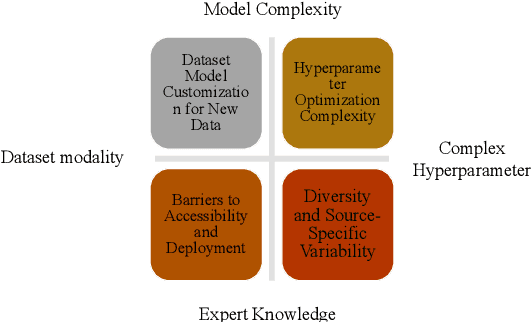
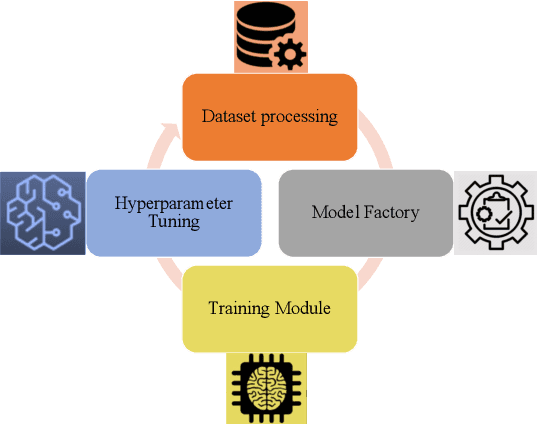

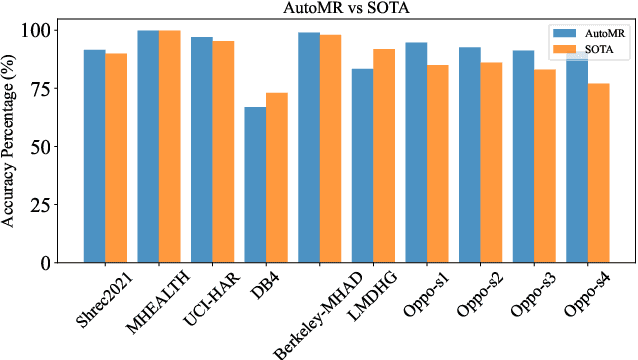
Abstract:In this paper, we present an end-to-end automated motion recognition (AutoMR) pipeline designed for multimodal datasets. The proposed framework seamlessly integrates data preprocessing, model training, hyperparameter tuning, and evaluation, enabling robust performance across diverse scenarios. Our approach addresses two primary challenges: 1) variability in sensor data formats and parameters across datasets, which traditionally requires task-specific machine learning implementations, and 2) the complexity and time consumption of hyperparameter tuning for optimal model performance. Our library features an all-in-one solution incorporating QuartzNet as the core model, automated hyperparameter tuning, and comprehensive metrics tracking. Extensive experiments demonstrate its effectiveness on 10 diverse datasets, achieving state-of-the-art performance. This work lays a solid foundation for deploying motion-capture solutions across varied real-world applications.
Duo Streamers: A Streaming Gesture Recognition Framework
Feb 17, 2025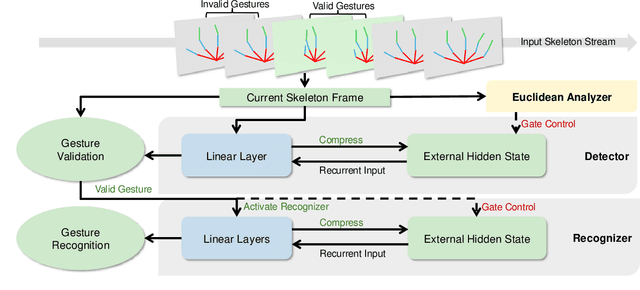
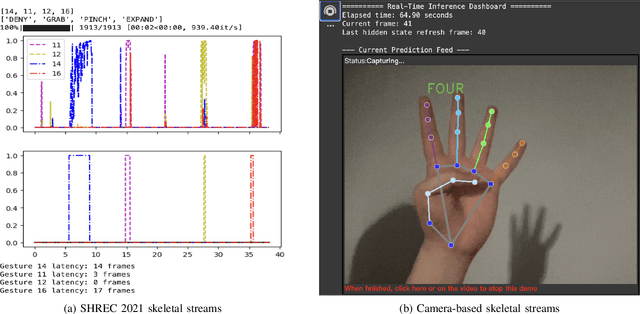


Abstract:Gesture recognition in resource-constrained scenarios faces significant challenges in achieving high accuracy and low latency. The streaming gesture recognition framework, Duo Streamers, proposed in this paper, addresses these challenges through a three-stage sparse recognition mechanism, an RNN-lite model with an external hidden state, and specialized training and post-processing pipelines, thereby making innovative progress in real-time performance and lightweight design. Experimental results show that Duo Streamers matches mainstream methods in accuracy metrics, while reducing the real-time factor by approximately 92.3%, i.e., delivering a nearly 13-fold speedup. In addition, the framework shrinks parameter counts to 1/38 (idle state) and 1/9 (busy state) compared to mainstream models. In summary, Duo Streamers not only offers an efficient and practical solution for streaming gesture recognition in resource-constrained devices but also lays a solid foundation for extended applications in multimodal and diverse scenarios.
 Add to Chrome
Add to Chrome Add to Firefox
Add to Firefox Add to Edge
Add to Edge